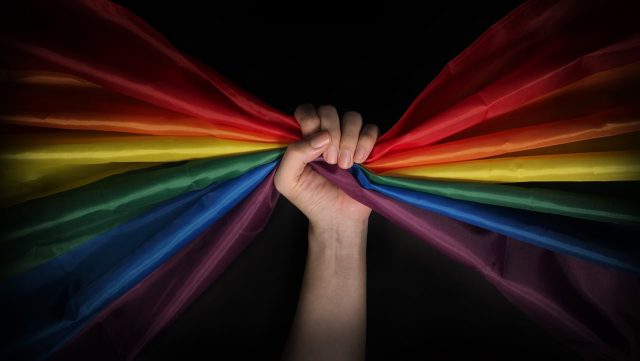Pride Month serves as a pivotal moment for reflecting on societal attitudes towards gender and sexuality, prompting discussions across various cultural and religious perspectives. Within Islam, the discourse on Pride Month intersects with foundational beliefs and ethical teachings that guide Muslim attitudes toward gender identity and sexual orientation.
Islamic teachings on gender and sexuality are deeply rooted in the Quran and the Sunnah of Prophet Muhammad (peace be upon him). These sources emphasise a structured approach to human relations, emphasising the complementarity between men and women while highlighting the sanctity of marriage as the framework for lawful sexual expression. Islam views sexual intimacy as a sacred bond meant to strengthen emotional ties within marital relationships, thereby fostering familial stability and societal cohesion.
From an Islamic perspective, the concept of Pride Month, which celebrates LGBTQ+ identities and advocates for their rights, intersects with core Islamic principles. Islam posits that human beings are created in a binary manner, distinctly as male and female (Quran 49:13), with each gender possessing unique roles and responsibilities within society. This perspective is anchored in the belief that Allah’s divine wisdom ordains these roles for the betterment of individuals and communities alike.
Homosexual acts, however, are explicitly prohibited in Islam, grounded in Quranic narratives such as the story of the people of Lut (Quran 7:80-84). These narratives illustrate the consequences of deviating from divine norms and emphasise the importance of adhering to God’s commands as a means of spiritual purification and societal rectitude. Therefore, Islamic teachings maintain that sexual relations should be confined to marriage between a man and a woman, with any deviation from this moral standard regarded as contrary to Islamic ethics.
Contemporary debates surrounding Pride Month often highlight the clash between Islamic teachings and prevailing Western norms that advocate for the acceptance and celebration of diverse sexual orientations and gender identities. While Western societies prioritise individual autonomy, Islamic ethics underscore the primacy of divine revelation and moral absolutes in shaping human conduct and societal values. This divergence underscores fundamental differences in philosophical outlooks regarding the nature of morality and the sources of ethical norms.
Muslim communities grappling with these issues are called upon to uphold Islamic principles while engaging compassionately with diverse perspectives. This includes promoting understanding and respect for all individuals, regardless of their sexual orientation or gender identity, while adhering to the ethical framework derived from Quranic teachings and prophetic traditions. Such an approach emphasises the Islamic commitment to justice, compassion, and the preservation of human dignity in all interactions.
In navigating Pride Month and its implications within Islamic contexts, Muslims are encouraged to maintain clarity on Quranic teachings regarding gender and sexuality, demonstrating empathy towards individuals facing challenges related to sexual orientation or gender identity, and upholding religious integrity amidst societal pressures. This balanced approach ensures that Islamic principles remain relevant and applicable in addressing contemporary issues while preserving religious identity and moral integrity within Muslim communities.
The challenges faced by Muslim youth concerning modern concepts of identity are particularly significant. The globalised world exposes young Muslims to diverse viewpoints on gender and sexuality, often leading to internal conflicts between their religious upbringing and the societal norms they encounter. Social media, entertainment, and peer influences often promote narratives that may be at odds with Islamic teachings, leading to a sense of alienation or confusion among Muslim youth.
Navigating these challenges requires a nuanced approach that integrates Islamic principles with an understanding of contemporary issues. Islamic scholars and community leaders are increasingly engaging in dialogue with youth to address their concerns, offering guidance that is both rooted in tradition and relevant to modern contexts. This involves educating young Muslims about the importance of upholding their faith while also fostering an environment where they can express their concerns and questions openly.
The concept of identity in Islam is holistic, encompassing faith, character, and behaviour. Muslims are encouraged to find their identity primarily in their relationship with Allah and adherence to Islamic ethics, rather than in transient societal labels. This approach helps Muslim youth to anchor their sense of self in something stable and enduring, providing a firm foundation amidst the shifting sands of contemporary identity politics.
In this context, the “3 C’s” principle—Compassion, Clarity, and Commitment—emerges as a guiding framework for Muslim youth navigating issues of identity and sexuality. Compassion involves approaching individuals with empathy and understanding, recognising their struggles, and offering support without compromising on Islamic principles. Clarity is about maintaining a clear understanding of Islamic teachings on gender and sexuality, ensuring that these principles are communicated effectively and consistently. Commitment refers to the dedication to living by these teachings and embodying Islamic values in all aspects of life.
By adhering to these principles, Muslim youth can navigate the complexities of modern identity while staying true to their faith. Compassion ensures that they remain connected to their communities and support networks, fostering a sense of belonging and understanding. Clarity provides them with a solid foundation of knowledge, enabling them to make informed decisions and articulate their beliefs confidently. Commitment reinforces their resolve to live according to Islamic values, offering a sense of purpose and direction in an often confusing world.
Ultimately, Islam offers a structured and principled framework for understanding gender and sexuality, rooted in divine guidance and ethical guidelines. By adhering to Quranic teachings and prophetic traditions, Muslims aim to navigate complex societal challenges with resilience, compassion, and a steadfast commitment to upholding Islamic ethics in all facets of life. This holistic approach ensures that Islamic values serve as a guiding light amidst evolving societal norms and cultural shifts surrounding Pride Month and related discussions on gender and sexual diversity.
In sum, Pride Month and the broader discourse on LGBTQ+ rights pose significant challenges and opportunities for Muslim communities. By grounding their responses in the teachings of the Quran and the Sunnah, and by applying the principles of Compassion, Clarity, and Commitment, Muslims can navigate these complex issues with integrity and faithfulness to Islamic values. This approach not only upholds the sanctity of Islamic ethics but also fosters a spirit of understanding and respect in a diverse and pluralistic world.






